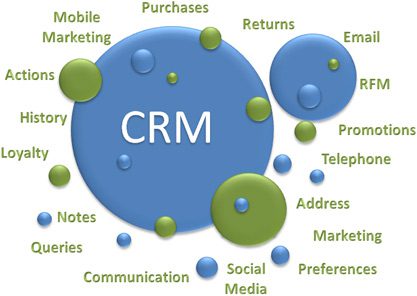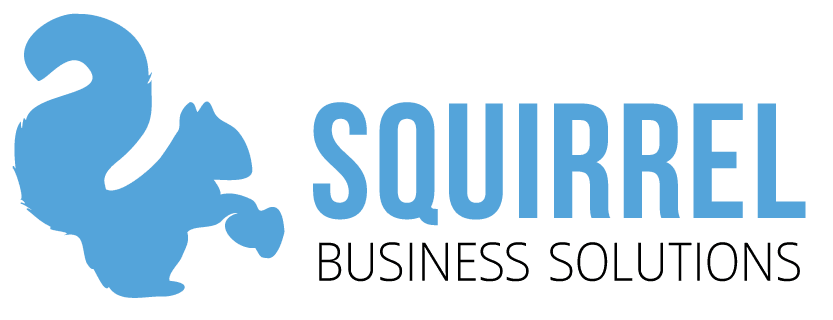 What motivates a business to consider Customer Relationship Management (CRM) software and how do they choose a successful solution?
What motivates a business to consider Customer Relationship Management (CRM) software and how do they choose a successful solution?
Many businesses look to CRM software solutions to address sales accountability tracking, to deliver key reporting metrics or maybe customer service deficiencies. Quite often the motivation is not a pro-active move, but rather a reactive one based on negative feedback or unwanted behaviours. The marketplace and the customer base is changing for everyone, and as a result, many businesses are looking towards CRM Software to extract best value from their marketing and sales processes and deliver a customer experience that ensures they stand out from their competitors.
The thing to keep in mind is that while CRM systems seem to promise a fairly instant solution to marketing and sales activities, the truth is that the whilst the solution may be sound it may take a while to show up on the bottom line. Many businesses don’t really track lead and opportunity conversion rates or acquisition costs per lead so won’t have base line metrics to make true comparisons against. There are a number of affordable cloud based CRM solutions that can deliver ROI in a matter of months if implemented well, however CRM needs to be considered in a broader context for the value it can deliver to a business.
CRM is in fact a Knowledge Management tool that supports specifically marketing, sales and customer service activities, but it draws from the whole organization in order to support all the departments and present a living picture of the organization.
The challenge is how to choose and implement a CRM system that caters for various needs of the stakeholders, users, customers and partners.
Tips to a Successful CRM Solution
Consider delivery approach and methods. Your choice of a CRM solution must enable a range of options for enhancements, customisation, tailoring for users and flexible integration options. There are two types of integration that need to be considered the first being the integration of different solutions and platforms (System Integration) and the second being the integration of different Business Processes Integration (BPI).
On-demand or Software As A Service (SaaS) CRM does not require the purchase of hardware or software in order to operate. Instead, the CRM services are delivered over the Internet and you pay for number of users on the system. This eliminates capital costs and systems maintenance expenses, leaving a couple of integration issues with regard to legacy systems and/or partner systems such as accounting or marketing software.
These solutions build upon a Service Oriented Architecture (SOA) which means the platform is not tied to a specific technology and may be implemented and/or integrated using API to connect the various systems you currently use. This gives the ability to build cost efficient and meaningful networks and to enhance business productivity and efficiency. You also have the choice, with online CRM software solutions, to customise the look and feel of the interface and the database. The flexibility of on-demand CRM is impressive and offers very efficient and creative solutions for streamlining or building systems integrations.
On-demand services are valued because of the flexibility and accessibility of the web. Today it is considered a business essential to establish a web presence, no matter what the business. Online CRM Services can consolidate business processes starting with your website and collect, collate and analyse information from your business to present meaningful, contextual and timely information. It is possible to bring both front and back office activities together in an online CRM system to enhance sales, marketing, customer service, inventory, and human resources activities. It is also possible to change business processes and adapt the CRM as business activities change.
One of the key aspects in a CRM implementation is a solid understanding of customer and market. Additionally, it is also important to understand that the marketplace is changing rapidly, due to the internet as a medium for commerce, marketing, social networking, etc. As a result many of todays business models will no longer be relevant when it comes to the customer model for interaction, service and retention. The criterion for managing business is changing and the CRM Solution must be flexible enough to adopt the changes.
The biggest impact to businesses is the change in the customer expectation and demand. Customers now are Internet savvy, in a hurry, and have no tolerance for rhetoric, unfiltered information or fumbling customer service. They are a group of people who form communities online, share experiences, demand instant and excellent sales, service and performance. Additionally, this customer base wants tailored solutions when it comes to service and or product selection. In short, they are very demanding and they are the ‘demand’ in the ‘Demand Chain’.
CRM has a real relevance to all organisations who want to build a ‘customer centric’ business that will be able to service and maximise the opportunities of a demanding marketplace. A well implemented CRM system will ensure you know your customer intimately, can anticipate their needs before they do and successfully retain them throughout the customer lifecycle.
Five Rules for Successful CRM Implementation
1. Define Vision and Strategy
This means that the vision must be clear for everyone and that strategy includes strong change management activities to support the vision and the uptake of a new CRM system. Each department will have goals and requirements, and some will likely need encouragement and support to embrace change. Identify and smooth areas of resistance, invite communications and input on process improvements, etc.v This is the biggest commitment and the best investment that can be made in moving toward a successful CRM Solution.
2. Be sure that the on-demand CRM vendor has an SOA platform
Ensure the vendor offers tools built on AJAX functionality so that you are not constrained by proprietary software issues, and it runs fast. Consider vendors that have proven successes in creative problem solving in tailoring and customizing the CRM. Knowledge management capabilities such as email integration, workflow and document management offers a chance for organisations to capture and reuse important information that often gets lost in transient communications.
3. Make sure the CRM vendor offers Professional Services and use them
The vendor will be able to translate the business processes into an automated network but each company must articulate it’s needs, there is no one size fits all application. You must dedicate time and resources to guarantee a quick, and cost efficient roll-out. Your implementation partner should be interested in more than just CRM, and be able to help you implement a solution that manages and interacts with all your organisations systems and processes.
4. Look for a solution with a Web Services API and data security
The CRM Solution must offer standard tools such as workflow or task automation, dashboard and analytics, rules based profiling and user access control, and real-time alerts so you don’t have to build or purchase the tools separately. Cloud based CRM Solutions are flexible and cost-efficient, and adaptations can be made to address business requirements for stringent system backup, security and data integrity so ask the hard questions and don’t fear monger!
5. Rally your troops!
Actively involve end-users in the solution design and testing, offer access to visioning and planning activities and prepare good training initiatives. Employees will experience work disruption, changes to familiar work routines, and face a learning curve with the CRM roll out. Help them understand the changes, the goals, the benefits and to adopt the solution as a benefit to everyone. If your employees and other stakeholders have been active participants in the implementation process, you will have flattened the learning curve and gone a long way to smooth uptake and user adoption.
As mentioned earlier, the market is changing but …… the customers have already changed. Demand chain refers to customer-facing information systems that provide direct input to the supply chain in order to optimise sales channel performance. Traditionally the activities here were defined by outbound activities – marketing and sales and service. Today’s customers are driving demand like never before looking for exacting customer service experiences. They are not interested in loyalty, loyalty programs, or heavy marketing. These customers are the demand chain, and they will drive the experience from creating demand, to defining marketing, sales and customer service expectations, to product and service specifics. They are not interested in waiting for you to get organised or to put together a plan, they want the service, product, information, now! If not, they know where else to go it is only a “Google” away.
If you have done your homework and prioritized the guidelines above, you will be well positioned to understand and address challenges in the new marketplace. You will be armed with the power of an online CRM Solution and will have the ability to anticipate customer changes and rise to the occasion. Furthermore you will be able to do some pro-active planning from the safe position of being a CRM Knowledge Based Organisation.

